- US hegemony may be threatened by a growing China.
- Following the history of the “Thucydides Trap,” an armed conflict between the United States and China is likely.
- China has been increasing its influence in regions of the world where the Americans are withdrawing theirs.
Since the end of the Cold War and the collapse of the Soviet Union, the US alone has become the most powerful country in the world militarily and economically. However, China’s rapid economic and military growth has become a threat to US economic hegemony.
Furthermore, the visit of the Speaker of the United States House of Representatives, Nancy Pelosi to the island of Taiwan in August 2022, sparked a major diplomatic rift that set off a warning signal across the world.
But at the moment, the United States and China are the two largest economies in the world. The two countries have had trade relations since the 20th century but are experiencing several diplomatic tensions and trade disputes.
This Chinese growth is very significant, so how will the United States behave in the face of this competition? Are there historical precedents for this type of situation?

What is the Thucydides trap and how does it work?
The term “Thucydides’ Trap” is used in the field of International Relations to describe the tendency towards war when an emerging power threatens to replace an already established great power.
The term is based on a quote from the ancient Athenian historian and military officer Thucydides but was recently used by American political scientist Graham Allison to describe the current situation between the US and China.
From the historical analysis over the last few decades, it can be said that a war between the United States and China is not only likely, but very possible. This theory was proven when a study by the Harvard Belfer Center for Science and International Affairs, after analyzing the historical record, concluded that in 12 of the 16 cases of competition between countries in the last 500 years it ended in war.
Therefore, when an emerging country such as China begins to threaten a dominant power such as the United States, diplomatic or economic problems that would otherwise be resolved can create a cascade of unexpected reactions not only in the economic but also in the military field.
However, one factor that can nullify the Thucydides Trap is the commercial relations between these two actors that can prevent an eventual armed conflict.
History of relations between China and the United States
China and the US have been going through seasons of diplomatic and economic conflict for several decades, so some of the problems faced today have their roots in the 20th century.
During this period, Washington supported the nationalists during the Chinese Revolution, in addition to having signed a mutual protection agreement with Taiwan, a self-governing island claimed by China. However, during the Cold War, Beijing severed ties with the former Soviet Republic and reconnected with the Americans after President Nixon’s visit.
During the 1980s, China initiated one of its most important domestic reforms towards its gradual economic opening. Meanwhile, the US sought to establish its international hegemony. As a result of the economic opening, China grew very quickly at the end of the 20th century and in the 2000s it reached a relevant level for the international economy, becoming the second largest economy in the world.
Despite Chinese investments in the United States and large American financial contributions to China, Beijing’s exponential growth is now being interpreted as a threat to American economic hegemony, which resulted in a trade war between the two countries in 2018, when Washington announced tariffs on products imported from China.
Tensions intensified with the US claim that large Chinese telecommunications companies such as Huawei, one of the pioneers of 5G technology, are spying on US companies.
Finally, in 2022, the visit of the US congresswoman to the island of Taiwan was received by China as a direct provocation, increasing the climate of tension between the countries.
The possible military conflict between two powers
In 2021, on the centenary of the Chinese Communist Party, 100 years of humiliation was cited. The narrative was that ten world powers “exploited China”. Among others, this includes countries such as the United States, Russia, Japan, England, Germany and France.
So, after getting rid of foreign domination and becoming the second largest economy in the world, it is believed that the country has a global project to establish its power. It is not by chance that China has expanded its influence in the “holes” left by the United States, such as in the African countries of the South Atlantic.
China also appears to seek US displacement from the Indo-Pacific region, and despite not yet having a High Seas Navy equivalent to the US, its regional influence has increased exponentially. It is clear that the country has an honor and national pride to care for, so it is likely that the Chinese will not be humiliated again, even if it costs a war.
The conflict between China and the United States can happen directly or indirectly. However, given the current world scenario of a direct war already established in Ukraine, an indirect war is more likely to break out, just as it did in Vietnam – which was essentially a “proxy war” between the US and Russia.
With the current scenario under analysis, it is possible and very likely that the island of Taiwan will be used as the field of a new proxy war, but this time between the United States and China. Diplomatic tension was evident in Pelosi’s visit and China did not hesitate to carry out military exercises around the island during the congresswoman’s visit, which could also be interpreted as a show of force.
Given the great Chinese growth, the informal Quad alliance – “Quadrilateral Security Dialogue”, made up of the United States, Australia, India and Japan – has been meeting to discuss China’s large regional influence and try to counter it.
The alliance was born as a maritime cooperation, but currently the members seek to act on various issues such as security, economics and health in the region. Therefore, the growth of the Chinese ended up uniting the group in the quest to contain the power of the eastern country and, probably, the alliance will have more and more relevance in the international scenario.
Finally, for many decades, the US has maintained a position of strategic ambiguity towards Taiwan, not making it clear whether or not it would defend Taipei in the event of Chinese aggression.
But in recent months, US President Biden has twice mentioned that he would defend Taiwan against China in the event of war, abandoning the norm of strategic ambiguity. One more match near the wick of the powder keg that is becoming the South China Sea.
Can economic cooperation prevent war?
For a long time, Germany believed that it could include Russia in the group of democratic nations through trade and economic relations, but with Moscow’s invasion of Ukraine it became evident that when it comes to national security, economic relations with Europe are in the background for Putin.
In World War II, economic relations between Germany, France and the United Kingdom also did not prevent conflict. Taking such historical facts as a reference, it is possible that Xi Jinping, Chinese president, will not avoid an armed conflict with major powers to defend his geopolitics, national and military security. Especially after recalling China’s centuries-old humiliation.
Air Force spokesman Shen Jinke was quoted by Chinese state media as saying the Air Force has several models of air fighters capable of circling “the precious island of our motherland”, referring to Taiwan. Shen also stated that “The Air Force has the firm will, complete confidence and sufficient capacity to defend national sovereignty and territorial integrity.”
Finally, Xi Jinping warned US President Joe Biden that Washington must respect the one-China principle and “those who play with fire will perish for it”.
Future trend of potential conflict between China and the United States
If China continues to grow at an accelerated rate and the United States grows, but with a lower percentage, it is possible that a conflict between the two powers will happen, directly or indirectly.
Although both countries have nuclear weapons, it is unlikely that they will be used as this is considered the last bastion of defense of a country and that often has irreversible consequences.
One of the chances they won’t come into conflict is if the Chinese economy weakens to the point where it can’t sustain its internal demands and a war. Still in 2022, China is in an economic crisis due to the COVID-19 quarantines and the weakening and threat of collapse of the real estate sector.
In addition, China is keeping an eye on what happens in Ukraine. If the West continues its strong support for Kiev and it defeats Russia, it will likely discourage Pekin from venturing with Taiwan. If Western support for Ukraine weakens, China will feel more confident of a potential victory against Taipei.
Another hypothesis would be a collapse of the Communist Party along with the rise of democratic leadership, as these are less likely to wage war. An autocracy goes to war more easily, as it does not need popular approval, unlike democracies that make conflict more unlikely.
Finally, it is possible for China to work towards the restoration of its economy and national well-being above all else. However, geopolitical events of this magnitude and with so many potential variables are difficult to predict and in the event of a threat, the Chinese Armed Forces are likely to respond accordingly. In that case, the Thucydides Trap will once again be confirmed.

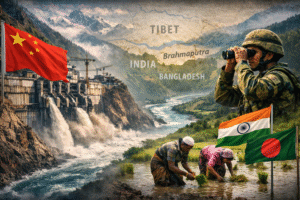
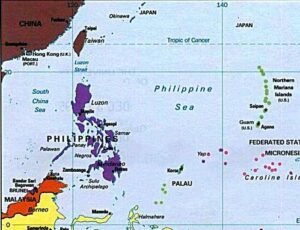
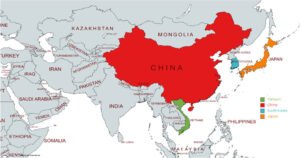


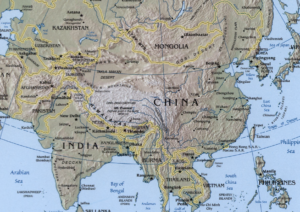



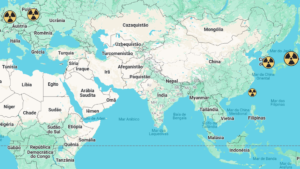
[…] competitor to Russia is China. China is not exactly a new player in the global arms market, but its growing technological capabilities imply that it is preparing to move beyond its traditional role as a provider of low-cost, […]
[…] of power and alliances in the region could emerge, with implications for both US strategy and Beijing’s strong influence in East […]
[…] of the South China Sea, the Strait of Malacca, which are progressively under greater tension due to disputes between China and the United States for greater influence. in the […]
[…] also highlight China as one of their biggest geopolitical competitors, even though Iran is also a challenge, it does not reach the level of China and Russia is not given […]
[…] toward nuclear-armed states like China and Russia have also contributed to global instability. His trade war with China and withdrawal from arms control treaties, such as the Intermediate-Range Nuclear Forces (INF) […]
[…] In an environment where states seek to maximize their security, the result may be an arms race where every defensive action is seen as a provocation by the adversary. In other words, every defensive action by one country may be seen as a provocation by the other, resulting in a vicious cycle of arms buildup and tensions, a fact explained in “game theory”. […]